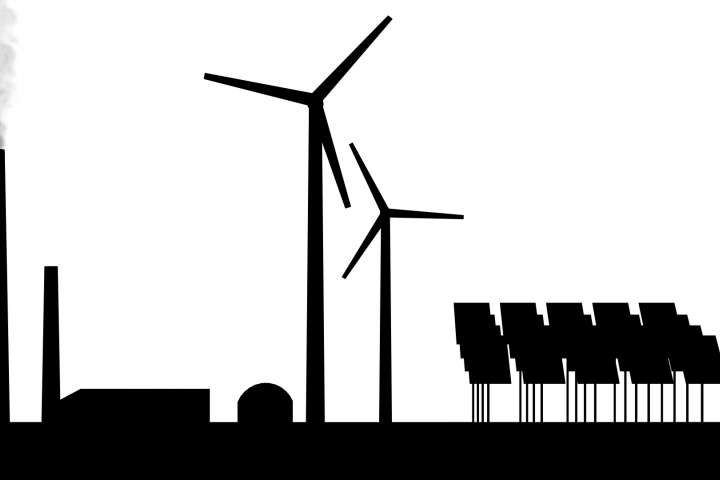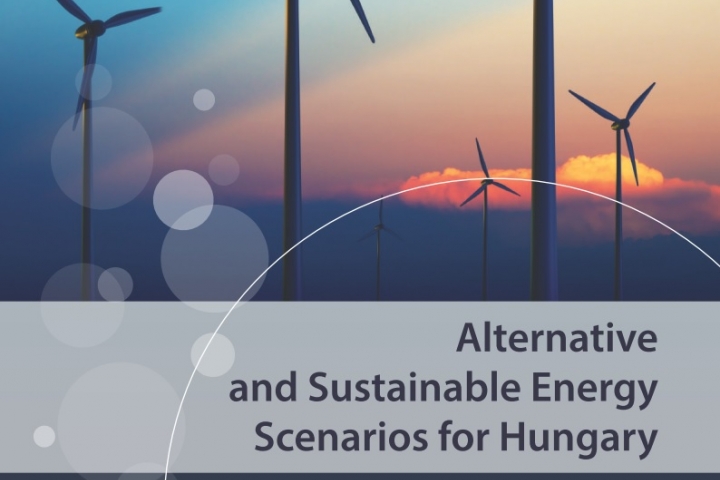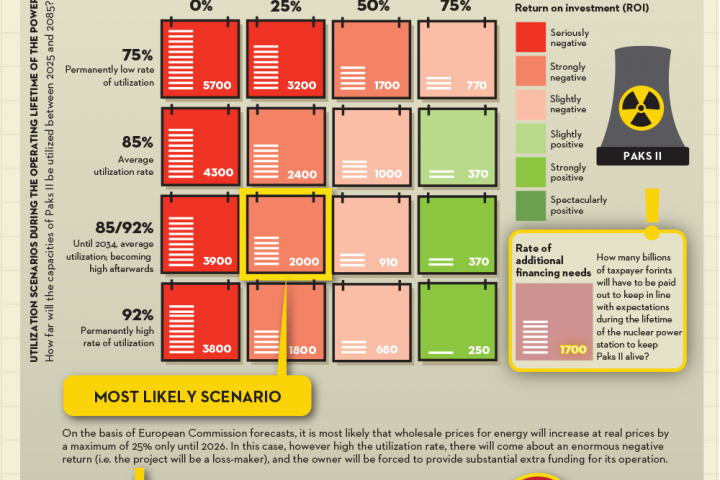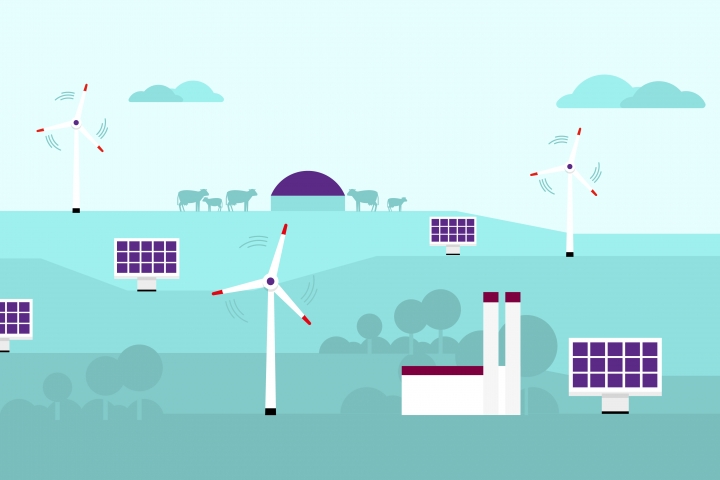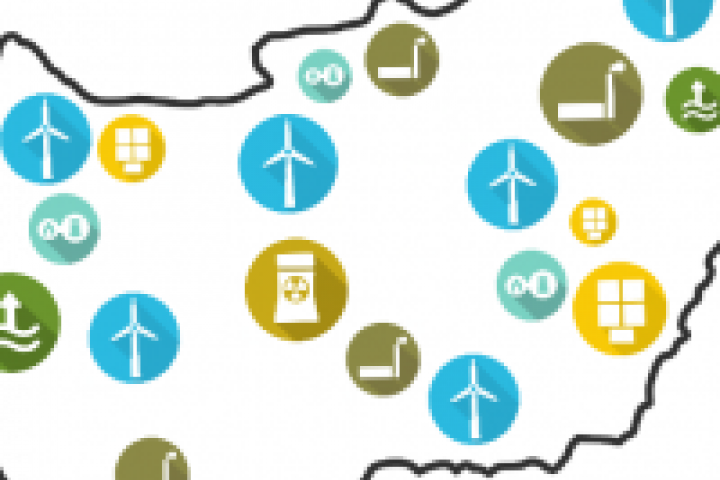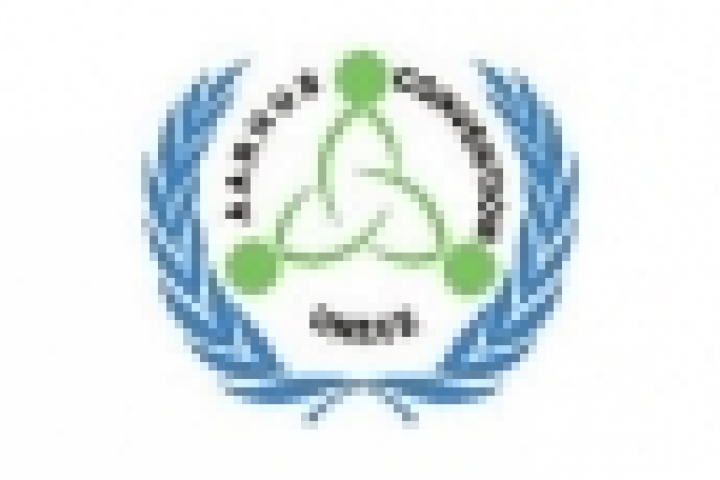The EU Court of Justice Overturns State Aid for Paks II
In today’s ruling, the Court of Justice of the European Union annulled the European Commission’s decision authorizing Hungary to provide state aid for the construction of the Paks II nuclear power plant. In order to proceed with the project, the Commission must now carry out a new procedure and examine the issue of the missing public procurement. As a result, the future of the project—already significantly delayed and far more expensive than the price agreed in the 2014 contracts—is now in serious doubt. The Energiaklub Climate Policy Institute had previously labelled the project an unfounded decision in its analyses.
The Grand Chamber of the Court of Justice of the European Union today issued a final, binding judgment in the case brought by Austria against the state financing of the new Paks nuclear power plant. In 2017, the European Commission approved the state aid for the construction of two new Paks reactors without properly investigating whether public procurement rules were respected. In other words, Hungary awarded the project directly to the Russian main contractor without an open tender, in violation of EU law.
This case goes beyond the technical details of the project: it is about whether the business interests of a member state government can override EU legal requirements—especially in the case of a publicly funded project with Russian involvement. The judgment not only affects the Paks project but also brings the issue of compliance of national energy investments with EU law back to the political agenda. Since the beginning, the Energiaklub Climate Policy Institute has consistently highlighted the lack of transparency in procurement, the economic and energy-related risks, and the sidelining of renewable alternatives.
“Today’s ruling has major implications for the fate of the Paks expansion, which has been dragging on for 11 years and was originally scheduled for completion by 2025,” said András Perger, Head of the Energy Programme at the Energiaklub Climate Policy Institute. “Now a new investigation will follow, causing further delays and increasing uncertainty. Instead of endlessly postponing the increasingly expensive Paks II project, the focus should shift to developing wind and other renewable energy sources, expanding storage capacities, and investing in energy savings and efficiency.”
According to the Energiaklub Climate Policy Institute, what is now needed is not only a new investigation but also a new energy policy direction—one that is built on decentralized and renewable-based systems.
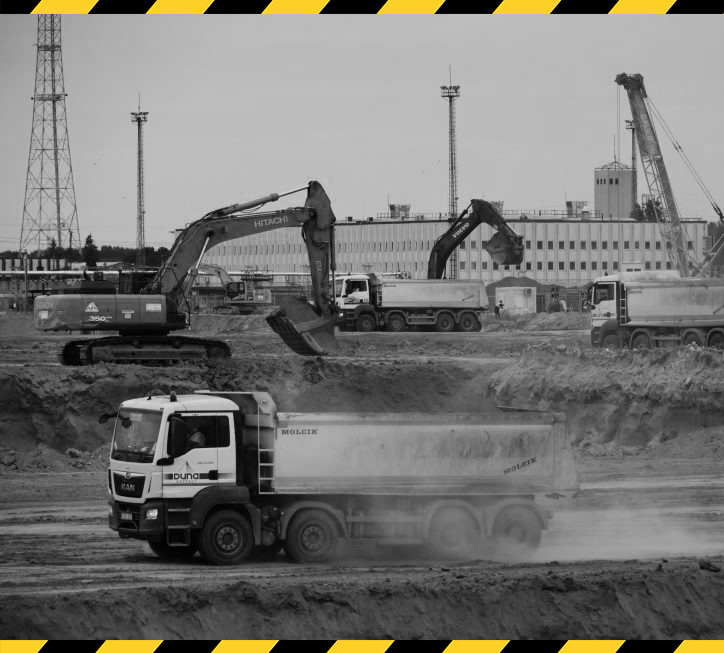
Background
The question of whether the Paks II project complies with EU law has been dragging on for over seven years. In 2017, the European Commission authorized Hungarian state aid for the construction of two new Paks reactors, even though the contractor—Nizhny Novgorod Engineering, a subsidiary of the Russian Rosatom—was awarded the contract without a public procurement procedure. Austria challenged this decision in 2018, arguing that EU rules on public procurement and state aid had been violated.
In the first phase of the legal procedure, in 2022, the General Court of the European Union dismissed Austria’s case. However, an appeal was filed, and the case was brought before the Grand Chamber of the Court of Justice of the EU (CJEU). In February 2025, Advocate General Laila Medina issued an opinion recommending that the General Court’s decision be set aside. She argued that the European Commission had committed a legal error by failing to thoroughly examine whether the selection of the contractor breached EU procurement rules. The Advocate General stressed that if state aid is inextricably linked to another violation of EU law, the aid cannot be approved.
The Court had several possible options: it could annul the Commission’s original authorization in full or in part, dismiss the appeal, or issue an interpretative judgment referring the case back to the lower court.
Why is state aid approval necessary?
The European Commission must assess whether state aid is compatible with the EU internal market under Articles 107–108 of the Treaty on the Functioning of the European Union (TFEU). According to today’s judgment, if state aid is also connected to another infringement of EU law (e.g., violation of public procurement rules), the Commission cannot approve it—even if it would otherwise be considered market-conform.
Why was the Russian company approved without competition? Was this a good idea?
The construction of the new power plant was agreed upon through an intergovernmental treaty, which included a clause that the Russian contractor, Nizhny Novgorod Engineering, would receive the contract without competition. The Commission did not examine this thoroughly, which was one of the key arguments in Austria’s lawsuit—and, according to the Court’s decision, this violated EU law.
What changes now?
A new procedure must now be conducted by the Commission, which must also take into account the violation of public procurement rules. Until then, the status of the aid remains legally uncertain.
What is the current status?
The project has been stalled for 11 years, and the Paks II investment has become economically and politically irrational. There has been no progress—only further legal and political disputes. Construction of Paks II has not begun; only the so-called “working pit” has been prepared. The pouring of the baseplate concrete—which would mark the official start of construction—was originally promised for March but did not take place. According to new promises, Rosatom would begin this in November.
What will happen in the near future?
The future of the project has become uncertain. The state aid approval process must be repeated, and this time it must also address the issue of the missing public procurement. This new investigation could take another one to one and a half years, further delaying the start of construction. It is an important factor that, since the 2014 contract signing, the external economic and political conditions have significantly changed. Although the project’s price was fixed in the original contracts, the Russian and Hungarian parties are currently renegotiating the scale of the cost increases—meaning that the amount of state aid and the economic viability of the project must be recalculated. In May of this year, the Commission presented a proposal under the RePowerEU roadmap, which includes a ban on the import of Russian nuclear technology (https://ec.europa.eu/commission/presscorner/detail/hu/ip_25_1131). Furthermore, any future Commission decision could also be challenged—so the legal wrangling may continue.
